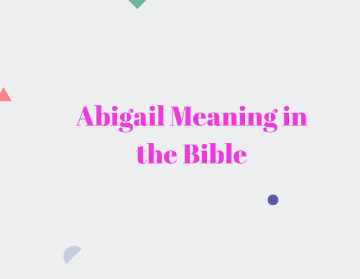The name David is one of the most timeless and well-recognized names in history, crossing cultural and geographic boundaries with ease. It carries a deep historical and religious significance, and for centuries, parents around the world have chosen this name for their sons. This article explores the meaning, origin, and popularity of the name David, providing a comprehensive understanding of why it remains a cherished choice for families.
Meaning of the Name David
The name David is of Hebrew origin and means "beloved" or "dearly loved." This meaning conveys warmth, affection, and kindness, making it a name that resonates emotionally for many. Throughout history, people have often chosen names with deep, positive meanings for their children, and David's meaning captures a sense of cherished love and admiration.
Origin of the Name David
David originates from the Hebrew Bible, also known as the Old Testament in the Christian tradition. It is best known for its association with King David, one of the most famous figures in biblical history. David was the second king of Israel, renowned for uniting the tribes of Israel and establishing Jerusalem as the nation's capital. His story is one of faith, leadership, and bravery, particularly when he famously defeated the giant Goliath with just a sling and a stone.
David is also credited as the author of many of the Psalms, a book of the Bible filled with poetic expressions of faith, worship, and devotion to God. For Jewish, Christian, and even Islamic traditions, King David represents a symbol of divine favor, righteousness, and leadership, making the name David carry significant spiritual weight.
Historical and Cultural Significance
Beyond its biblical roots, the name David has been used by numerous notable figures throughout history. Saint David is the patron saint of Wales, celebrated for his piety and work in spreading Christianity. Over time, many kings, leaders, and public figures have borne the name, further solidifying its association with strength and leadership.
The name has also appeared frequently in literature, art, and music. For instance, Michelangelo's David is one of the most iconic sculptures in history, depicting the biblical hero in a moment of contemplation before facing Goliath. In modern pop culture, many celebrities and influential individuals carry the name David, adding to its enduring appeal.
Popularity of the Name David
The popularity of the name David has remained consistently high across many countries for centuries. In the United States, David has been a top name for boys since the early 1900s. It reached peak popularity during the 1950s and 1960s, when it was frequently ranked in the top five most common boys' names. Even today, David remains a popular choice, consistently appearing in the top 50 names for boys in the U.S.
Globally, the name David is widely used in various cultures and languages. For instance:
- In Spanish-speaking countries, David is pronounced "Dah-veed."
- In France, it's pronounced "Dah-veed" as well, but with a soft ending.
- The name is also popular in countries such as Germany, Italy, and the United Kingdom.
This widespread appeal can be attributed to both its simplicity and its strong historical associations.
Famous People Named David
Many well-known figures across various fields have borne the name David, adding to its cultural resonance. Some notable examples include:
- David Beckham – Legendary English soccer player and global icon.
- David Bowie – Iconic British musician and actor, known for his innovation and artistry.
- David Attenborough – Renowned British naturalist and broadcaster.
- David Letterman – American television host and comedian, famous for his long-running talk show.
- David Lynch – Acclaimed American filmmaker and visual artist.
These individuals have left their mark on the world, and their achievements continue to inspire people. The name David, associated with such diverse and talented figures, has only grown in stature and recognition.
Variations of the Name David
While David is widely used in its original form, there are several variations of the name in different languages and cultures:
- Dawid (Polish, Hebrew)
- Davide (Italian)
- Dávid (Hungarian, Slovak)
- Davíd (Spanish)
- Davíð (Icelandic)
These variations reflect the name’s global reach and adaptability, while still maintaining its core meaning and heritage.
Why David Remains a Timeless Choice
There are several reasons why David continues to be a timeless and popular name:
1. Strong Historical and Religious Significance: With its deep roots in religious texts and historical figures, David carries a sense of strength, leadership, and righteousness.
2. Simple and Elegant: The name David is easy to pronounce and spell in many languages, contributing to its universal appeal.
3. Positive Meaning: Being "beloved" is a quality every parent would want for their child. The name’s meaning is both uplifting and universally understood.
4. Versatile: Whether you’re naming a child in the U.S., Europe, or beyond, David fits seamlessly into many cultures without losing its identity.






